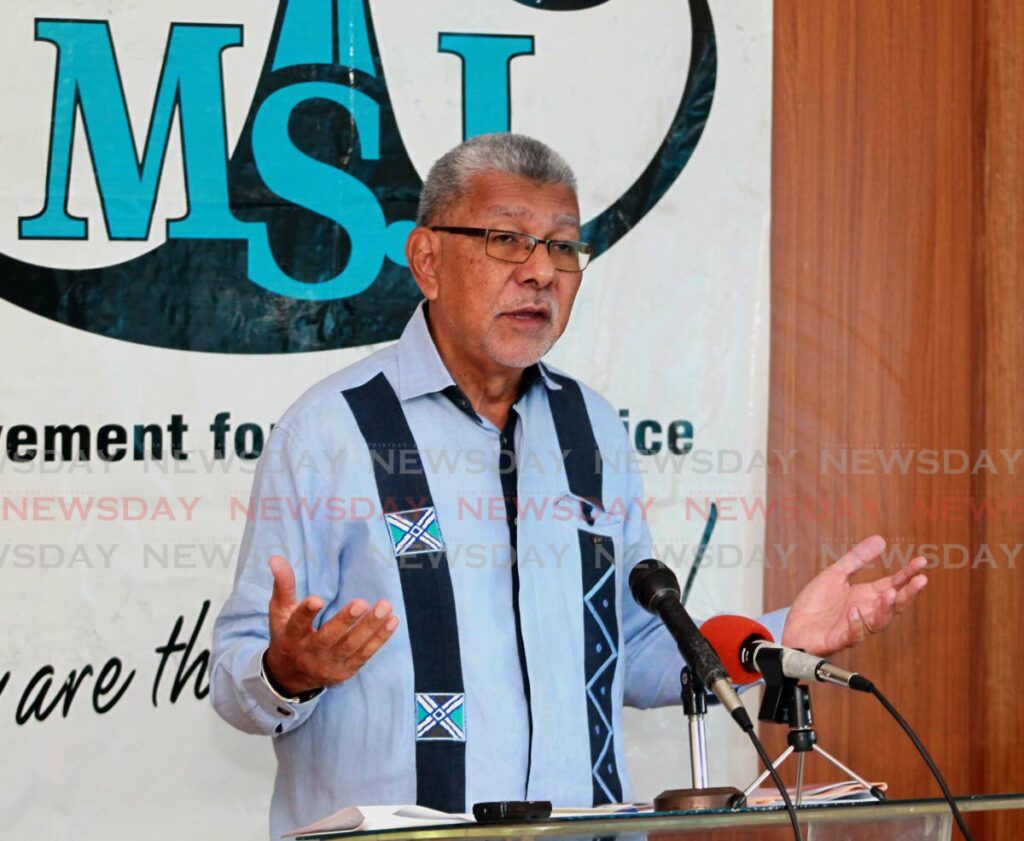Abdulah stands by call to tax rich, big business

MOVEMENT for Social Justice (MSJ) political leader David Abdulah is standing by his call for greater taxes to be imposed on "the rich" and big businesses in Trinidad and Tobago, in response to recently increased fuel prices.
Abdulah made this call during a march the MSJ held in Port of Spain on April 23, to protest the new fuel prices implemented on April 19.
Minister in the Ministry of Finance Brian Manning, Oropouche West MP Dave Tancoo , TT Chamber of Industry and Commerce CEO Ian De Souza, Greater San Fernando Chamber of Commerce president Kiran Singh and Confederation of Regional Business Chambers head Vivek Charran all subsequently criticised Abdulah's comments.
On Tuesday, Abdulah said, "I still hold to it."
Responding to Manning's suggestion that he did not understand economics. Abdulah advised Manning to read a book by economics professor Joseph Stiglitz on inequality.
"Inequality is one of the most pressing issues in the world today, both between countries and within countries."
He recalled that he recently challenged Finance Minister Colm Imbert to publicly debate this issue with him.
Abdulah observed that people such as Microsoft co-founder Bill Gates and US business magnate Warren Buffett have openly said the wealthy are not taxed enough or carrying their fair share of society's tax burden.
He said an article was published in the New York Times on Tuesday about "governments pursuing what we call neo-liberal policies, which essentially favour the owners and managers of big capital and place the burdens of adjustment on ordinary working people and the poor."
Abdulah added, "It is not a socialist agenda that Mr Manning and others are trying to suggest."
He suggested his critics read Section B of the preamble to the Constitution: "Whereas the people of TT respect the principles of social justice and therefore believe that the operation of the economic system should result in the material resources of the community being so distributed as to subserve the common good, that there should be adequate means of livelihood for all, that labour should not be exploited or forced by economic necessity to operate in inhumane conditions but that there should be opportunity for advancement on the basis of recognition of merit, ability and integrity."
Abdulah said his argument is "precisely the fact that material resources of the community are not being so distributed to serve the common good." He reiterated his belief that those resources "are serving the good primarily of a few, to the detriment of the many."
Manning said Abdulah was parroting failed socialist policies from other countries. Tancoo described Abdulah's statements as counterproductive.
De Souza said Abdulah's suggestion would act as a disincentive to investment, which would negatively affect economic activity, employment and the growth of the economy.
Singh said, “A delicate balancing act of monetising available resources versus an increased revenue-collection system through the taxation system must be well thought out.”
Charran said Abdulah was "getting into the socialist experiment."

Comments
"Abdulah stands by call to tax rich, big business"